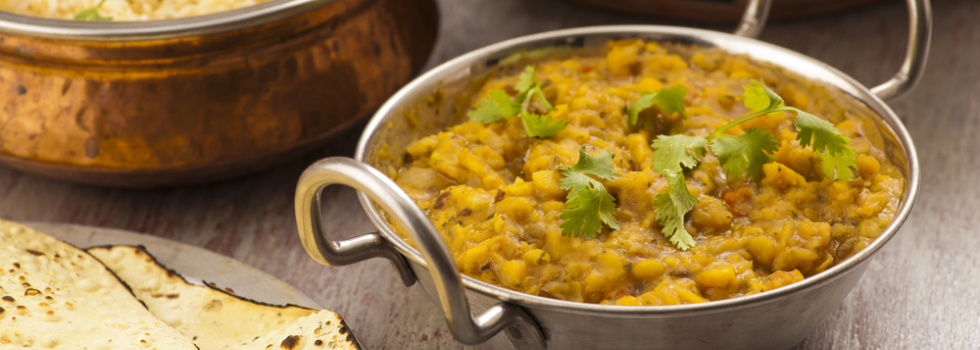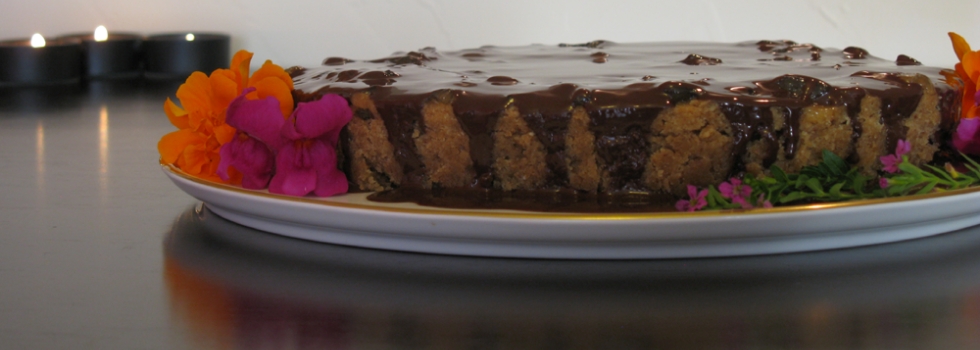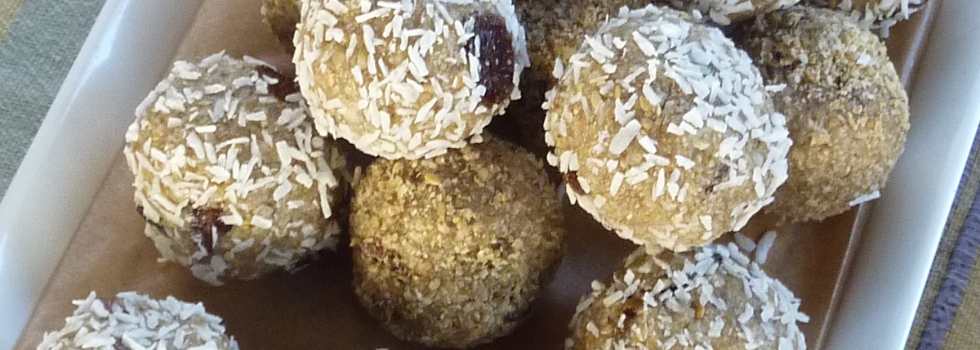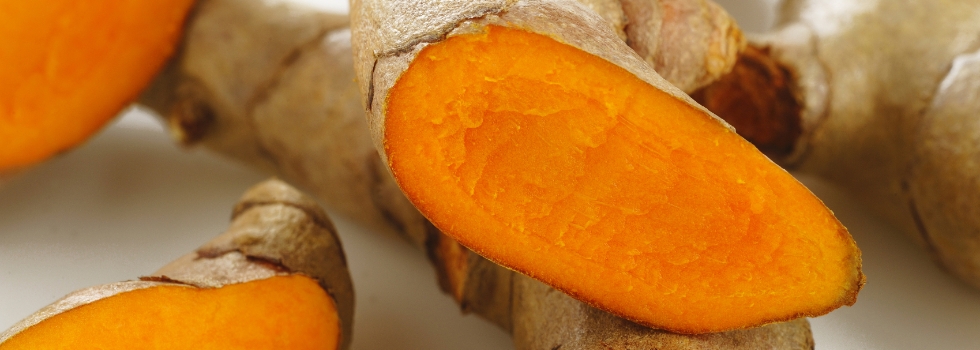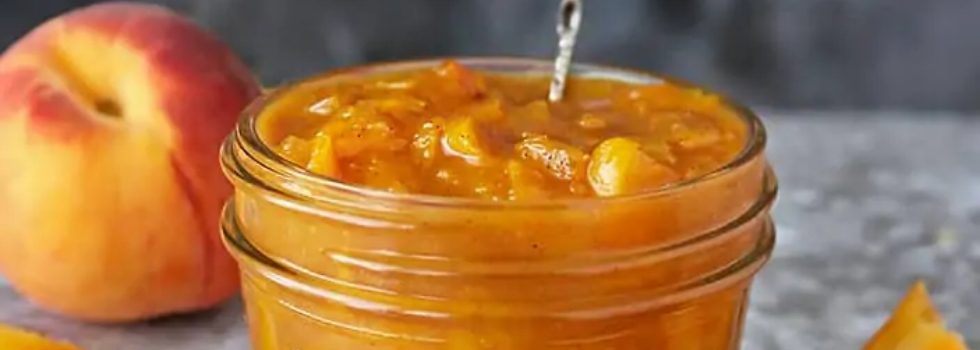Kitchari means mixture, usually of two grains. This is one kitchari recipe that is particularly nourishing and easy to digest. Please note the options below for some alternatives and, after the recipe, read more about this ancient dish.
Options
- Vegetables such as zucchini, asparagus, sweet potato
- For Vata or Kapha conditions: add a pinch of ginger powder
- For Pitta: leave out the mustard seeds
Ingredients
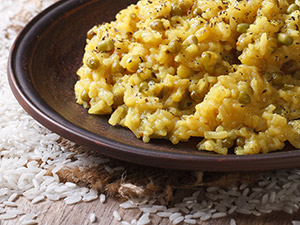
1/2 cup basmati rice
1 cup mung dal (split yellow)
6 cups (approx.) water
1/2 to 1 inch ginger root, chopped or grated
A bit of mineral salt (1/4 tsp. or so)
2 tsp. ghee
1/2 tsp. coriander powder
1/2 tsp. cumin powder
1/2 tsp. whole cumin seeds
1/2 tsp. mustard seeds
1/2 tsp. turmeric powder
1 pinch asafoetida (hing)
Handful of fresh cilantro leaves
1 and 1/2 cups assorted vegetables (optional)
Preparation
Carefully pick over rice and dal to remove any stones. Wash each separately in at least 2 changes of water. Add the 6 cups of water to the rice and dal and cook covered until it becomes soft, about 20 minutes.
While that is cooking, prepare any vegetables that suit your constitution. Cut them into smallish pieces. Add the vegetables to the cooked rice and dal mixture and cook 10 minutes longer.
In a separate saucepan, sauté the seeds in the ghee until they pop. Then add the other spices. Stir together to release the flavors. Stir the sautéed spices into the cooked dal, rice, and vegetable mixture. Add the mineral salt and chopped fresh cilantro and serve.
Teas For Each Constitution
Vata Tea — equal parts ground ginger, cumin and coriander
Pitta Tea — equal parts ground cumin, coriander and fennel
Kapha Tea — equal parts ground ginger, cinnamon, and a pinch of clove
Ayurveda and An Ancient Food in Modern Times
Kitchari is basic to the Ayurvedic way of life. Composed of basmati rice and mung dal, it has as many variations as there are cooks who prepare it. A one-pot dish, kitchari originates on the Asian subcontinent and has references dating back thousands of years. The skillful use of spices and vegetables can produce balancing effects for the three bodily doshas. It has many qualities but being quick and easy to prepare makes it a popular dish for almost every lifestyle.
Basmati rice and mung dal together create a balanced food that is a good protein combination and is tridoshic. This complete food is easy to digest and gives strength and vitality. It nourishes all the tissues of the body. Kitchari is the preferred food to use when fasting on a mono-fast or while going through cleansing programs such as panchakarma. Kitchari is excellent for detoxification and de-aging of the cells.
Lifestyle choices are one of the basic tenets of Ayurveda and diet is an important part of a healthy lifestyle. We have a lot of general information about Ayurveda in the Resources section. To find out more about the dietary side of Ayurveda, you can make delicious food in Usha and Vasant Lad’s book, Ayurvedic Cooking for Self-Healing.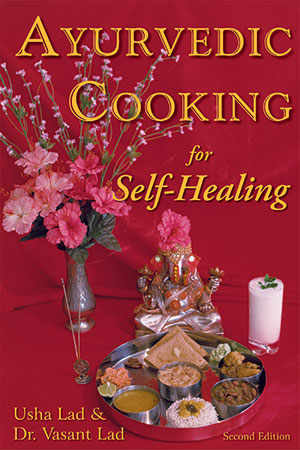
Another approach would be to attend their cooking seminar held each February (or March). It’s a great way to learn more about Ayurveda, cook a delicious meal and meet the Lads. Of course, we have other weekend seminars that present many aspects of Ayurveda in a fun, supportive environment or Vasant Lad offers a couple of webinars each year. If you want to delve more deeply, you can come to a summer intensive course.
After exploring Ayurveda through these avenues, you may want a career as an Ayurvedic practitioner and our Education Department can help you look at what that would be like. So, make some kitchari and experience Ayurveda with your first dish!
Caution: A kitchari mono-diet can lead to constipation if taken exclusively for several days, as it is low in fiber. To ensure proper elimination, the following may prove helpful if taken once a day, away from kitchari meals: psyllium husks or seeds with water OR oat bran OR prune juice.
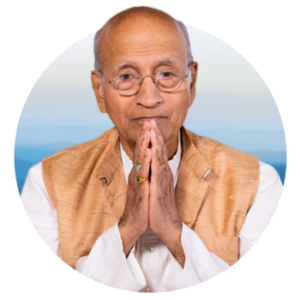
Vasant Lad BAM&S, MASc
A native of India, he served for three years as Medical Director of the Ayurveda Hospital in Pune, India. He was Professor of Clinical Medicine at the Pune University College of Ayurvedic Medicine for 15 years. He holds a Bachelor’s of Ayurvedic Medicine and Surgery (BAM&S) degree from the University of Pune and a Master’s of Ayurvedic Science (MASc) degree from Tilak Ayurved Mahavidyalaya. The author of numerous books, Vasant Lad is respected throughout the world for his knowledge of Ayurveda.

